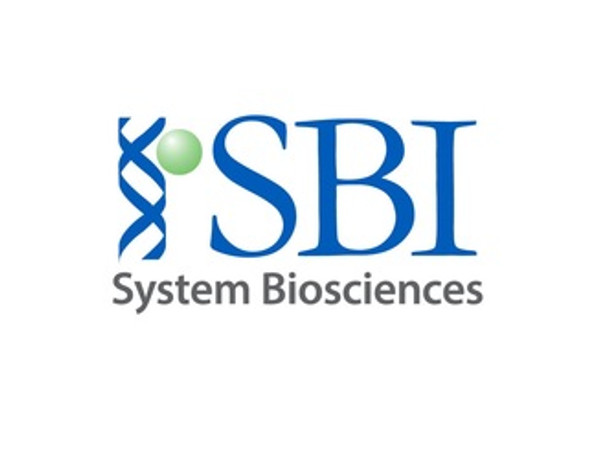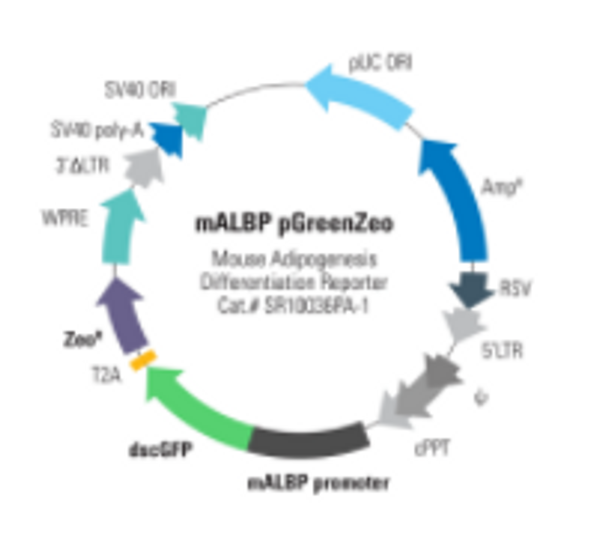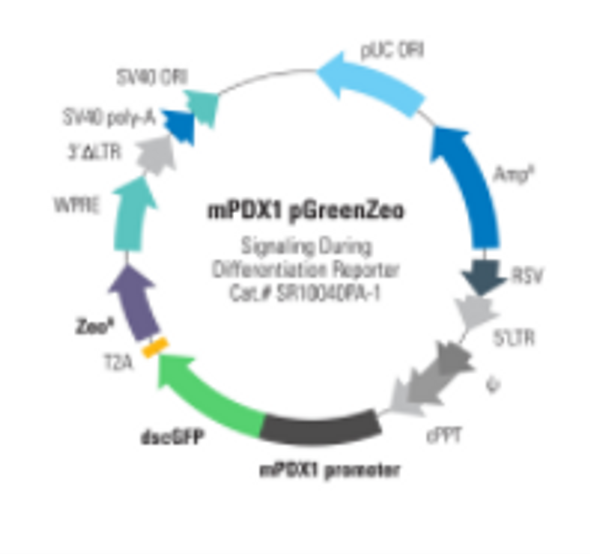System Biosciences
Mouse Col2a1 Differentiation Reporter (pGreenZeo, Plasmid)
- SKU:
- SR1001PA-1
- Availability:
- Usually Shipped in 5 Working Days
- Size:
- 10 ug
- Shipping Temperature:
- Blue Ice/ Dry Ice
Description
Mouse Col2a1 Differentiation Reporter (pGreenZeo, Plasmid). Cat# SR1001PA. Supplier: SBI System Biosciences

Overview
Monitor chondrogenic differentiation in real time
With SBI’s line of pGreenZeo, pRedZeo, and pRedTK Differentation Reporter Vectors, you can monitor stem cell differentiation in real time. These vectors leverage our reliable lentivector technology and save you time—our pre-built differentiation reporters that come as ready-to-package lentivector plasmids or ready-to-transduce pre-packaged lentivirus. The Mouse Col2a1 pGreenZeo Differentiation Reporter co-expresses dscGFP (destabilized copGFP, 2-hour half-life) and zeomycin resistance from the mouse Col2a1 promoter/enhancer elements, enabling visualization chondrogenesis using GFP fluorescence and selection for the desired cells using zeomycin.
- Create stable chondrogenesis-reporting cell lines
- Monitor multiple lineages simultaneously
- Track differentiation in live cells in real time
Please note that these vectors only function properly when transduced. Transfection keeps the constitutive RSV promoter intact, leading to nonspecific expression of the reporter genes.
Choose the differentiation reporter that’s right for you
Neural differentiation reporters





Supporting Data
See some of our differentiation reporters in action
SBI’s differentiation reporters are used in a number of papers. The data shown below are just one example (from Ravin R, Hoeppner DJ, Munno DM, Carmel L, Sullivan J, Levitt DL, Miller JL, Athaide C, Panchision DM, McKay RD. Potency and fate specification in CNS stem cell populations in vitro. Cell Stem Cell. 2008 Dec 4; 3(6):670-80. PMID: 19041783)
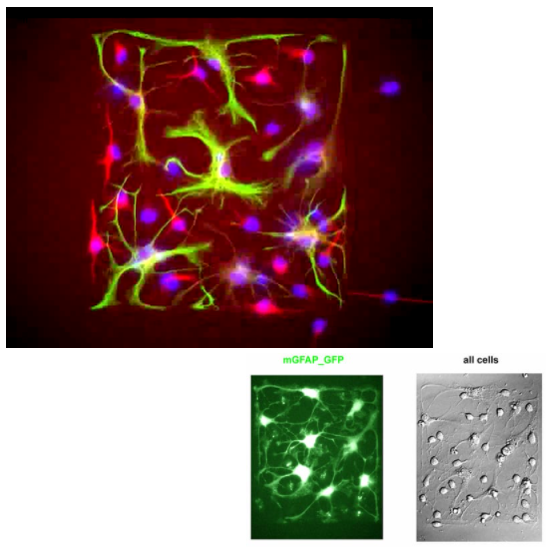
Figure 1. Live imaging of neuronal differentiation. Ravin, et al, used SBI’s Mouse Nestin pGreenFire Differentiation Reporter (Cat.# SR10016VA-1), which drives GFP expression from the glial fibrillary acidic protein promoter, to watch mouse neural stem cells differentiate into a network of mature neurons, oligodendrocytes, and astrocytes over the course of seven days. The periodic “flashes” seen in this video correspond to fluorescent photos taken of the growing cells to identify the GFP signals. The final photo taken after the network formation is shown below the video (color added). Among the network of neurons, only the astrocytes are bright green, demonstrating the specificity of SBI’s mouse Nestin pGreenFire Differentiation Reporter.
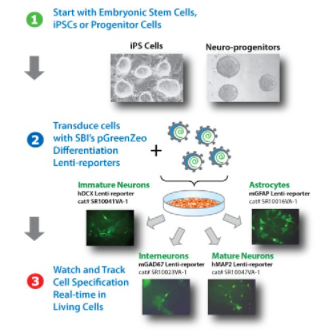
Figure 2. Simultaneously track multiple lineages from iPS and progenitor cells.
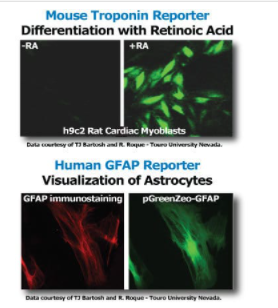
Figure 3. Additional differentiation reporter data.


